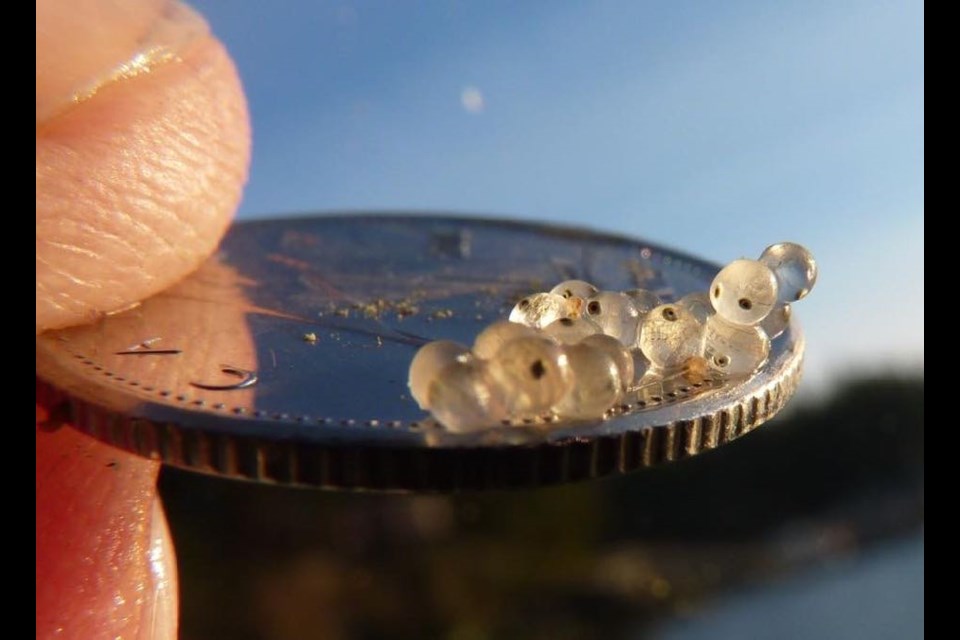The Rotary clubs on the Sunshine Coast have been dropping “curtains” off docks for 10 years to assist the herring spawn to hatch and continue to feed the salmon in these waters. Acting as artificial nurseries for the herring roe, our curtains temporarily replace eelgrass and kelp beds, which have been basically decimated by climate change, until such time as restoration of natural kelp and eelgrass takes place.
Climate change raising the ocean temperatures, in tandem with a teeming sea urchin population, is killing bull kelp forests in the Salish Sea. To stem losses that already have kelp at historic lows in the Central Strait of Georgia, researchers are searching for the most heat-resistant kelp populations, plus, working to perfect a method of reintroducing the plants. Striking declines in the geographical distribution and abundance of eelgrass, including known herring spawning habitats, have been well documented.
On the Sunshine Coast, from Powell River to Gibsons, we have collectively supported nearly 100 fabric curtains to attract the herring to lay their eggs on, instead of on creosote pilings which kills the eggs! Unfortunately, the success rate for attracting herring to spawn on the Coast has not been great for the past few years.
Herring are an important forage fish for salmon, whales and other marine life, and recognized as a keystone species for the Pacific Ocean ecosystem. A healthy and abundant population of herring means a greater abundance of salmon, seals and porpoises, which in turn support a healthier population of whales that feed on them.
The coastal herring usually lay their eggs starting in early February and into early March. The volunteers install the curtains once the herring fish are spotted in the area. The Rotary Clubs use many volunteers to help build, monitor and then remove and clean the curtains after spawning.
As an education program, the Sechelt Rotary club recently engaged the Rotary Youth Club at Chatelech Secondary School, Rotary Interactors, to help with the program. During a routine monitoring of the curtains at the government dock beside the Lighthouse pub in Sechelt on Monday, March 4, they saw success! The fabric curtains are covered in herring eggs! The picture shows youth Interact co-president Georgia Doyle holding up the curtain and the white spots are herring eggs. Hopefully more eggs will appear!



